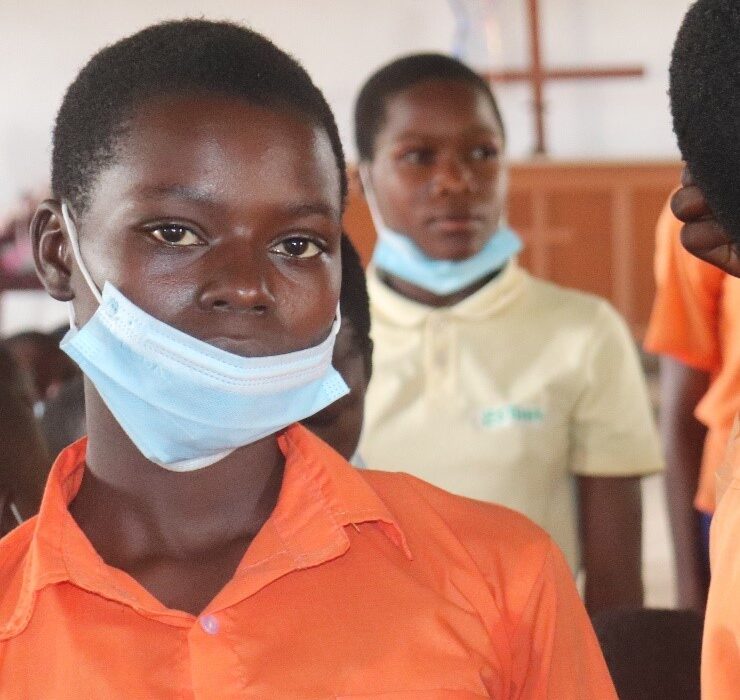By deliberately working towards tracking and supporting the well-being of women and girls through trauma healing and overcoming critical steps to wholesomely recover from war impact, Women’s International Peace Centre from time to time organises camps for adolescent girls from different schools in conflict affected areas.
On 4th and 5th March 2022, the Peace Centre organised a Girls’ Power Camp at Orungo Primary School in Amuria district under the theme ‘Building our leadership’ aimed at raising awareness on sexual and reproductive health rights, leadership, and managing the evolutionary trends of COVID-19.
The two-day camp brought together a total of 171 female students from Primary Five, Six, and Seven.
Sessions facilitated in the camp included; –
Reflection on pupils’ lives.
The session examined the impact of the closure of schools and the new challenges emerging with the new trends in COVID-19. Responses from the students reflected an increase in; orphaned children as a result of parents’ death from COVID-19, forced early marriages, teenage pregnancies, unsafe abortions, child abuse, GBV in form of sexual harassment, and many more.
Understanding our bodies
This session dealt with the physical and physiological changes during the growth and development of adolescent girls and how to understand their bodies. The physiological changes discussed included; Early marriage and childbearing; Contraction of infectious diseases like (AIDS/sexually transmitted infections); Sexual orientation, abuse or violence, and gender discrimination.
With the physical changes, Sr. Safia Ibiara explained that girls in their adolescence stage would start to experience breast enlargement, growth of pubic hair around their vaginal area, and menstruation which was defined as the shedding of the inner lining of the uterus/uterine wall that occurs during the stage of ripeness called ovulation.
The discussion also highlighted the facilitator’s recommendations for young girls to follow. These included;
- Growth and development happens differently for everyone therefore girls were to stop comparing themselves to others. They were discouraged from using creams that had become popular for hip and buttock enhancement.
- Menstruation is a natural occurrence that begins as early as 8/9 years old and therefore those who started menstruating shouldn’t feel embarrassed.
- Students to take extra care of their vaginal health by frequently washing themselves and their private parts. They were encouraged to keep their undergarments clean and ensure personal hygiene was maintained especially during their menstruation period by bathing twice/thrice a day where applicable.
- Pubic hair is natural and therefore they shouldnot be ashamed of it. Young girls were encouraged to shave regularly using a clean razor blade or a shaver.
- Avoid having bad odor from poor hygiene and rather use deodorant or antiperspirant where applicable.
- Brushing teeth twice a day and were taught to brush in a circular motion and ensure they scrubbed their tongues as well.
- Ensuring smartness by keeping nails short and neat, ironing uniforms, keeping uniforms neatly tucked, and clothes clean.
- Abstaining from sex as they were still young. They were informed about HIV/AIDS, an incurable sexually transmitted disease, and other infections like Gonorrhea and Syphilis which caused health complications for young girls.
- Another consequence of what Sr. Safia termed as pre-mature sex was early pregnancy which also posed more complications for young girls like vaginal fistula that would lead to uncontrollable passing of urine.
- Seeking counsel with their senior women teachers or other teachers they felt comfortable with in cases where they had no other adult to rely on; on issues relating to their sexual and reproductive health, as well as their general well-being.
Finally, students were taught step by step practical skilling on making re-usable menstrual pads.



